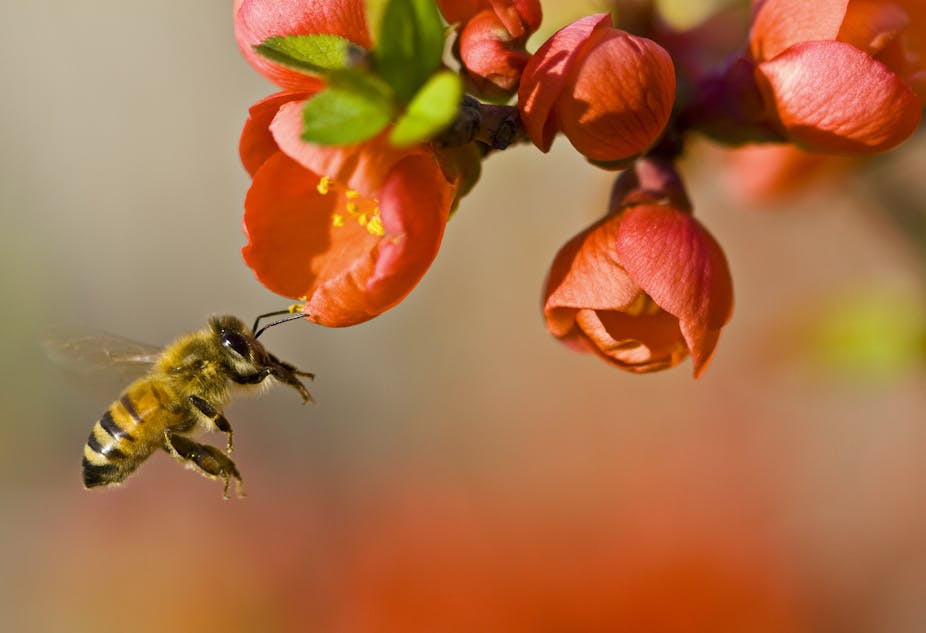Attempts to put a dollar value on the natural world – so-called “natural capital” or “ecosystem services” – have produced some frankly staggering numbers. A seminal 1997 paper valued the world’s ecosystem services at US$33 trillion (A$42 trillion) a year. This estimate was controversial, given that it dwarfed the entire global market economy, which at the time stood at roughly US$18 trillion a year.
An updated estimate published last year suggested that a better annual global estimate of the value of ecosystem services would have been even higher – a massive US$145 trillion in 1997. Disappointingly, the paper also valued today’s natural world at less than this – roughly US$125 trillion a year, because of damage to Earth’s ecosystems in the interim.
Still, whichever way you slice it, nature is worth a lot. Ecosystem services are still estimated to be worth something like twice as much as the world’s US$75 trillion gross domestic product. Put another way, the estimated US$20 trillion decline in annual ecosystem services between 1997 and 2014 is equivalent to wiping out a quarter of today’s global annual economic activity.
These are disturbing and significant losses if one acknowledges the legitimacy of these kinds of studies, although not everyone does. Some economists have criticized these estimates while some philosophers have critiqued these assessments because some ecosystem services are literally invaluable. Water has infinite value to any living human, but none of us pays an infinite amount of money (or even all of our income) for the water we use.
So it’s easy to see why people have difficulty wrapping their head around how to put dollar values on the environment. The numbers are too big to make economic sense, and yet too small to describe the absolute essentials of life.
Perhaps we can make some headway by working through one of the most oft-quoted examples of ecosystem services: the bees that help us grow our food.
Hard workers
Insect pollination is a classic ecosystem service. Insects pollinate our crops for free, and if they were to go extinct we would probably have to try and do it ourselves. We can therefore estimate the value of the bees’ work by calculating the cost of paying armies of people to wander from plant to plant with small pollen-covered paintbrushes. One estimate put this figure at US$217 billion a year.
If such methods sound a bit rough and ready to you, consider the valuation of share market assets during the global financial crisis. In 2008 the people of the United States lost more than 20% of their wealth as measured in stocks, bonds, real estate, and other marketed financial assets. The Dow Jones Industrial Average went down by more than a third of its total value. How “real” were those values before or after the crash?
Putting a value on ecosystem services is not the same as commodification or privatization. Many ecosystem services are best considered as public goods or common resources, but we still need a way to put a value on them, so that people will see that they have value.
Why? Because otherwise (and without wishing to sound facetious) we wouldn’t be able to argue with anyone who claims there’s a sound economic case for deliberately killing all the bees.
Bye bye, bees
Let’s go back to our hypothetical workforce of human crop pollinators. If bees were to go extinct and be replaced with paid workers, it would be a “win-win-win” scenario from a strictly economic perspective: boosting economic productivity while creating jobs and generating tax revenue.
I would hope even the most logical economist wouldn’t really want to live in a world with no bees. But what this thought experiment shows is that we need to develop worldviews that are broader than the dominant economic one we are currently trapped in.
One possibility is a global market for ecosystem services, although this idea is complicated by the fact that ecosystems are public goods and thus cannot really be owned or traded. The question of using free-market solutions to protect the environment is just as fraught, if not more so, than it is for delivering public schools, prisons or military defence. On the other hand, there are those who would argue there’s a case for privatising organisations like fish and wildlife services, or coast guards.
Where is the environment’s bailout?
Perhaps, given the huge value of ecosystem services, what we really need is to put environmental advocates in similar positions of authority to those enjoyed by powerful economists in the US government. People like Henry Paulson, Timothy Geithner, and Ben Bernanke, who were given the political power to print trillions of dollars to “save the economy”.
No country in the world has ministers or leaders with anything like that sort of power to “save the environment”. Yet the environment we depend on for our survival is clearly more valuable than any market economy.
Economics is sometimes described as the art of allocating scarce resources. The problem is that ecosystem services were not considered a scarce resource for the first two centuries of modern economics. Fixing this oversight will involve identifying and classifying these services, and assessing their economic value. The current economic model of unending growth cannot be tweaked to make room for this.
The serious threat to environmental resources such as biodiversity, a stable climate, wetlands, coral reefs, and insect pollination suggests that humanity is facing perhaps its greatest challenge for survival. If we do not give “saving the environment” just as much priority (if not more) as “saving the economy”, we will continue down the environmentally destructive road that we have been on for the past two hundred years. Ironically, if we continue down this road the economy may continue to grow while overall human well-being declines.
The bees have been doing a good job, and they never ask for a raise. Let’s not terminate their contract.

